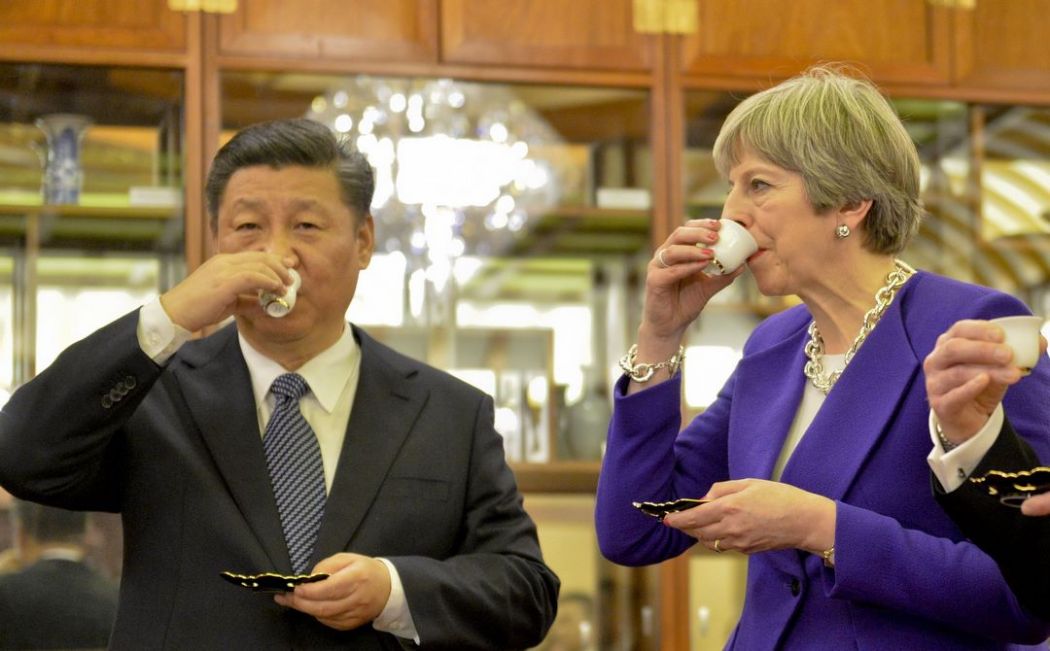There is no question that the Chinese leadership under President Xi Jinping has reneged on the Sino-British Joint Declaration of 1984 that promised Hong Kong freedom of speech and legal autonomy for 50 years after the 1997 handover from British to Chinese rule. Through repeated so-called “interpretations” of Hong Kong’s mini-constitution, the Basic Law, Beijing has poisoned our politics and bent the will of our public officials and judiciary.
For those who love this city for its unique mix of cultures and for its stubborn, downright heroic resistance to the increasingly suffocating hand of the central government, it’s a sad state of affairs.

But what about the commitment of the other party to this historic agreement, which established the “one country, two systems” arrangement under which Hong Kong’s way of life was supposed to be protected until 2047?
The answer, unfortunately, can be summed up in one word following British Prime Minister Theresa May’s just concluded three-day trip to China: Pathetic.
As Hong Kong’s besieged pan-democrats were reeling once again this week in the wake of the news that a mid-level bureaucrat—acting entirely on her own, if you choose to believe our wholly unconvincing chief executive—had barred 21-year-old Agnes Chow Ting from entering the race for a seat in the Legislative Council by-election to be held March 11, May was stacking up trade deals on the mainland adding up to more than £9 billion (HK$99.8 billion) while hailing “a golden era” in Sino-British relations.
With every stroke of the pen, the prime minister was cheered on by a large, mercenary entourage representing British businesses and trade groups devoid of interest in the blatant political vetting and erosion of freedoms now taking place in Hong Kong. Since Chow’s disqualification last Saturday, two lesser-known candidates—localist Ventus Lau Wing-hong and Sha Tin District Councillor James Chan Kwok-kung—have also been barred from taking part in the by-election. That makes for a total of 15 Legco disqualifications, either through pre-election screening or ousters from office, in less than two years.

Yes, Britain’s Foreign Office issued a polite expression of concern over Chow’s fate, but then May just signed another trade deal that relegated Hong Kong to a brief, irrelevant side topic in current Sino-British relations.
The Prime Minister was welcomed to the Diaoyutai State Guesthouse in Beijing for a tea ceremony with President Xi #PMinChina pic.twitter.com/8v6SuRv2HD
— UK Prime Minister (@10DowningStreet) February 1, 2018
Meanwhile, despite a chorus of disapproval from abroad as well as criticism from prominent academics and lawyers who call Hong Kong home, Chief Executive Carrie Lam Cheng Yuet-ngor looked straight into the camera’s eye and denied that the decision to bar Chow was a political hatchet job dressed up as a legal judgement that had been orchestrated by her or by anyone else in the Hong Kong or central governments.
No, we are asked to believe, this was just returning officer Anne Teng objectively examining the facts of the case and, without any hint of intervention by her superiors, doing the right thing.
Defending Teng’s decision—which was based on the call for Hong Kong’s self-determination expressed in the manifesto representing Chow’s political party, Demosisto, but made without any consultation with Chow herself—the chief executive declared: “The law is clear. The facts are clear.”
And indeed they are—but not in the twisted, Orwellian, post-interpretation worldview of Beijing and its kowtowing servants, from the chief executive on down, in the Hong Kong government.
According the powers that be in the north and to a chief executive who feels obliged to parrot their linguistic manipulations, advocating self-determination for Hong Kong after the handover agreement expires 29 years from now violates Article 1 of the Basic Law stating that Hong Kong is “an inalienable part of the People’s Republic of China.”

While dogmatically stating and restating that point, Lam and her masters in Beijing also doggedly choose to ignore other key provisions in the Basic Law safeguarding freedom of speech and free and fair participation in elections—provisions that a group of 30 of the city’s top lawyers, including the current head of the Bar Association, Philip Dykes, insists make the barring of Chow “unreasonable, unlawful and unconstitutional.”
Hong Kong officials also don’t bother to explain why Nathan Law Kwun-chun—who, along with Chow and Joshua Wong Chi-fung, is a cofounder of Demosisto—was in 2016 allowed to run and win the same Hong Kong Island Legco seat that Chow has now been prohibited from contesting. In an earlier Beijing-engineered injustice, Law would subsequently be disqualified as a lawmaker for adding words of protest to his oath during the Legco swearing-in ceremony, but no one ever argued that he was ineligible to even run.
It seems the rules—or at least the government’s interpretation of the rules—have become quite fluid depending on the politics of the moment and the dictates of the central government. Somewhat unexpectedly, the candidacy of another pan-democrat—Edward Yiu Chung-yim, a contender for the Kowloon West seat vacated by another casualty of the oath-taking debacle, Youngspiration’s Yau Wai-ching–was approved last week. But that approval came only after Yiu, who last July was also disqualified from Legco for altering his oath, was subjected to what amounted to a loyalty test by yet another overzealous returning officer.
Not surprisingly, news of Chow’s disqualification has been poorly received beyond our shores. A host of distinguished organisations and figures—from Human Rights Watch to the European Union to former Hong Kong governor Chris Patten—have all denounced it, but the growing mountain of criticism against Beijing’s roughshod incursions on Hong Kong’s autonomy is dismissed as “foreign meddling” by our chief executive, again echoing her masters across the border.

Patten and the former leader of Britain’s Liberal Democrats, Paddy Ashdown, went so far as to coauthor a letter to May urging her not to sacrifice Hong Kong’s freedoms on the altar of Mammon during her China trip.
Apparently, however, the prime minister was too busy signing trade deals to read it.
